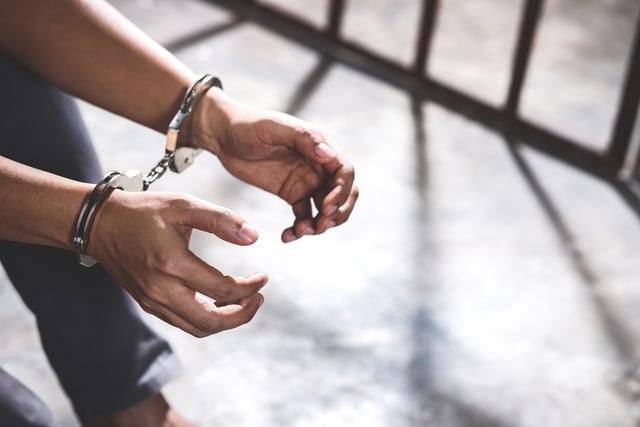
It happens in the blink of an eye. Someone steps too close, raises a fist, or pulls something from their pocket—and you react. Maybe you strike first. Maybe you draw a weapon. Maybe you run. But later, once the adrenaline wears off and the police are on the scene, the question shifts: was it really self-defense… or could it be assault?
Florida has one of the most well-known and debated self-defense laws in the country: Stand Your Ground. It sounds simple—you have the right to defend yourself without retreating—but the truth is far more complex. Especially when someone ends up hurt—or worse.
That’s where criminal defense attorneys come in. A firm like Chabrowe, with deep experience in Florida’s criminal courts, knows how to build a case around self-defense claims. Whether you’re facing charges or just trying to understand your rights, knowing how “Stand Your Ground” works can be the difference between walking free and facing years behind bars.
What “Stand Your Ground” Means in Florida
Florida’s Stand Your Ground law was passed in 2005 and made national headlines soon after. The statute essentially removes the “duty to retreat” in certain situations, allowing people to use force—including deadly force—if they reasonably believe it’s necessary to prevent harm.
Here’s what that means in plain terms:
- You don’t have to try to escape first if you’re in a place you have a right to be.
- You can defend yourself—or someone else—against a perceived threat.
- You can use deadly force if you believe it’s necessary to prevent death, great bodily harm, or a forcible felony.
But just because you believe your actions were justified doesn’t mean the court—or the prosecutor—will agree. That’s where things get tricky.
The Legal Standard: “Reasonable Belief” Isn’t Just About Fear
The law protects people who act with a reasonable belief that they’re in danger. But what counts as reasonable?
This is where many Stand Your Ground cases get bogged down. Fear alone isn’t enough—you have to show that a “reasonable person” in your situation would have reacted the same way.
Here are some questions that often come up in court:
- Did the other person have a weapon?
- Who started the confrontation?
- Were you cornered or threatened verbally?
- Was there any opportunity to de-escalate?
In many cases, surveillance footage, witness statements, and forensic evidence play a huge role in deciding whether the fear was reasonable. The more chaotic the scene, the harder it is to separate instinct from intent.
When the Law Doesn’t Apply: Common Misconceptions
One of the biggest myths about Stand Your Ground is that it gives you a free pass to use force anytime you feel scared. Not true.
Here’s when the law doesn’t protect you:
You Were the Aggressor
If you started the fight or provoked the other person, Stand Your Ground probably won’t help your case—unless the other person escalated to deadly force and you had no choice but to respond.
You Were Engaging in Illegal Activity
If you were breaking the law when the incident occurred (e.g., trespassing, drug dealing, or committing another crime), your self-defense claim is much weaker.
The Force Was Disproportionate
You can’t respond to a slap with a gunshot and expect immunity. The level of force has to match the threat.
Real Florida Cases That Shaped the Debate
No discussion of Stand Your Ground is complete without looking at real cases that brought it national attention.
The Trayvon Martin Case (2012)
This case ignited a firestorm of debate about race, vigilantism, and what “reasonable fear” really looks like. George Zimmerman claimed self-defense after shooting 17-year-old Trayvon Martin. Although Stand Your Ground was not the defense used at trial, the law’s presence in pre-trial hearings helped shape public perception.
The Curtis Reeves Theater Case (2014–2022)
A retired police captain shot and killed a man in a movie theater after a dispute over texting. The defense claimed Reeves feared for his life when popcorn was thrown at him. The case dragged on for years, ending with a not guilty verdict. Many questioned whether the threat justified deadly force.
These cases show how emotionally—and politically—charged self-defense claims can be. They also highlight the importance of legal nuance and strong representation.
How a Criminal Defense Lawyer Builds a Self-Defense Case
If you’re facing charges after using force in self-defense, you’re not automatically protected by the law. You have to prove it—or at least convince a judge there’s enough doubt to justify immunity.
Here’s how attorneys typically approach it:
1. Investigate the Scene Thoroughly
Defense teams gather physical evidence, 911 calls, camera footage, and witness statements. Every detail matters, especially when law enforcement may have assumed guilt early on.
2. File for a Pretrial Immunity Hearing
Under Florida law, you can request a special hearing before trial. If the judge agrees your actions were protected by Stand Your Ground, the charges may be dismissed entirely.
3. Challenge the Prosecution’s Narrative
Prosecutors often try to portray the defendant as reckless, angry, or aggressive. A skilled lawyer will reframe the story using context, prior threats, or behavior of the alleged victim to support the claim of fear.
4. Prepare for Trial (If Needed)
If immunity is denied, the defense strategy pivots to persuading a jury. That means carefully choosing language, visuals, and expert testimony to show the threat was real and the response justified.
What to Do If You’ve Acted in Self-Defense in Florida
If you’ve been involved in a self-defense incident—especially one involving serious injury or death—it’s important to act quickly and smartly:
- Do not give a detailed statement to police without legal counsel.
- Contact a criminal defense attorney immediately.
- Preserve evidence (texts, clothes, witness names, security footage).
- Avoid discussing the incident on social media.
Even if you’re certain you did the right thing, legal systems don’t always treat self-defense fairly without strong representation.
When Standing Your Ground Becomes Standing Trial
Self-defense laws are supposed to protect the innocent—but in practice, they often lead to lengthy legal battles, emotional stress, and financial strain. Prosecutors may be skeptical. The media may sensationalize. And juries may struggle with the human side of what happened.
That’s why having someone in your corner who knows Florida law inside and out can make all the difference. Whether it’s securing a dismissal through immunity, negotiating a lesser charge, or going to trial, a seasoned defense attorney can help bring clarity and support to a situation that may feel anything but clear.
Final Thoughts: Know Your Rights—Before You Have to Use Them
No one plans to be in a situation where Stand Your Ground becomes relevant. But knowing your rights ahead of time could change how things unfold if you ever have to make a split-second decision. And if you’re already facing the legal aftermath of a self-defense act, don’t go it alone.
Self-defense is your right—but proving it is a legal battle all its own.
Disclaimer
The information contained in South Florida Reporter is for general information purposes only.
The South Florida Reporter assumes no responsibility for errors or omissions in the contents of the Service.
In no event shall the South Florida Reporter be liable for any special, direct, indirect, consequential, or incidental damages or any damages whatsoever, whether in an action of contract, negligence or other tort, arising out of or in connection with the use of the Service or the contents of the Service.
The Company reserves the right to make additions, deletions, or modifications to the contents of the Service at any time without prior notice.
The Company does not warrant that the Service is free of viruses or other harmful components












